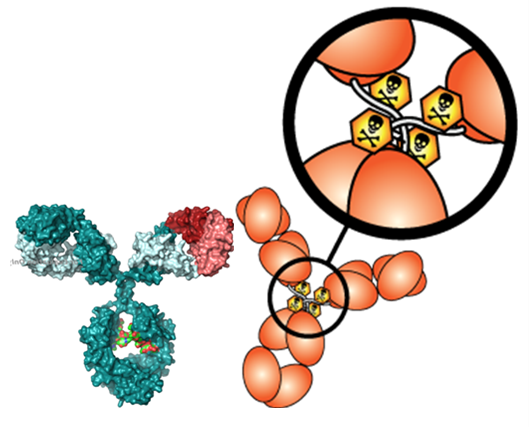The antibody-drug conjugate tisotumab vedotin (marketed at Tivdak) which targets the microtubule-inhibitor monomethyl auristatin E (MMAE) to the tumor antigen tissue factor, was approved FDA in September 2021 for the treatment of patients with recurrent or metastatic cervical cancer. During its discovery and development, tisotumab vedotin was selected for its ability to efficiently deliver the MMAE toxin to lysosomes, leading to potent tumor cell killing.

The bispecific antibody amivantamab (marketed as Rybrevant) targeting both the tumor antigens EGFR and cMet was approved by FDA in May and conditionally approved by EMA in December 2021 for the treatment of patients with non-small cell lung cancer harbouring EGFR exon 20 mutations. Amivantamab was built on the bispecific antibody technology DuoBody, which was invented and developed by Prof. Parren and his coworkers at the biotechnology company Genmab. DuoBody can be considered a breakthrough technology as it represents the first genuine platform technology to discover, develop and produce bispecific antibodies both at small laboratory and at large manufacturing scale. A further therapeutic DuoBody, termed epcoritamab (CD20 x CD3), engineered to recruit T cells for tumor cell killing is in late-stage clinical development. The discovery of epcoritamab was the subject of the thesis of Prof. Parren’s PhD student Dr. Patrick Engelberts, who obtained his PhD at the LUMC in 2019.
